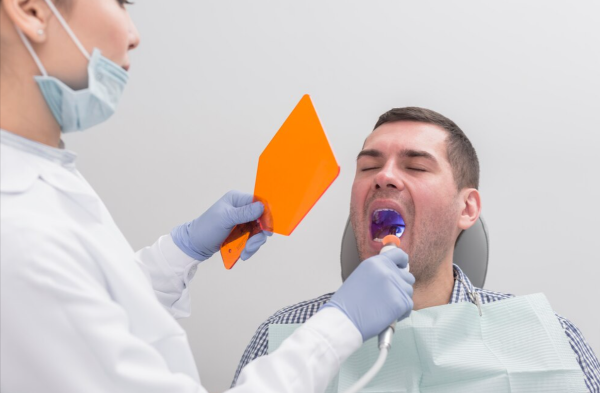Having a bright, white smile can significantly impact your self-confidence. It is no wonder that teeth whitening has become one of the most sought-after cosmetic dental procedures.
A radiant smile can boost your self-esteem and improve your overall appearance. Teeth whitening can help remove stains caused by food, drinks, smoking, and aging, giving you a more youthful and vibrant smile.
Overview of Dental Insurance Coverage
Uncover the cost of teeth whitening at the dentist with insurance coverage, exploring variations based on plans and additional services offered.
Before diving into the costs of teeth whitening, it is crucial to understand how dental insurance coverage works. Dental insurance plans vary in terms of what they cover and the percentage they reimburse.
Some plans may have specific exclusions for cosmetic procedures like teeth whitening, while others may provide partial coverage. It is essential to review your insurance policy or consult with your provider to determine your coverage limitations.
Understanding the Cost of Teeth Whitening
The cost of teeth whitening can vary depending on several factors. The type of procedure you choose, the severity of the discoloration, and your location can all influence the cost.
In general, in-office professional teeth whitening tends to be more expensive than at-home treatments. However, professional whitening procedures often yield quicker and more dramatic results.
Factors That Influence the Cost of Teeth Whitening
Several factors can influence the cost of teeth whitening procedures. The complexity of your case, the level of discoloration, and the experience and reputation of the dental professional can all contribute to the final price.
Additionally, the region where you live can play a role in the cost variation. Major cities and metropolitan areas tend to have higher dental fees compared to rural areas.
How Dental Insurance Can Help Cover the Cost?
While dental insurance may not always cover teeth whitening procedures, some plans provide partial coverage or offer discounts for cosmetic treatments.
It is crucial to review your policy’s details to determine if teeth whitening is included. If it is not covered, you may still be eligible for reimbursement through a flexible spending account (FSA) or a Overall health savings account (HSA), if applicable.
Average Cost of Teeth Whitening With Insurance
The cost of teeth whitening with insurance can vary significantly depending on your location and the type of insurance plan you have. On average, in-office professional teeth whitening can range from $300 to $1,000 per session.
With insurance coverage, you may be responsible for a portion of the cost, usually around 20% to 50%, depending on your plan. It is advisable to contact your insurance provider to obtain an accurate estimate based on your specific coverage.
Additional Expenses to Consider
When budgeting for teeth whitening, it is essential to consider any additional expenses that may arise. For example, if you opt for at-home teeth whitening kits, you may need to purchase additional whitening gel or trays.
It is also worth noting that teeth whitening is not a permanent solution, and touch-up treatments may be necessary to maintain the desired results, which can incur additional costs.
Tips for Maximizing Dental Insurance Coverage for Teeth Whitening
To make the most of your dental insurance coverage for teeth whitening, follow these tips:
- Review your insurance policy: Understand the specific coverage limitations and exclusions for cosmetic dental procedures.
- Consult with your dentist: Discuss your desire for teeth whitening and explore all the available options that align with your insurance coverage.
- Utilize flexible spending accounts (FSAs) or health savings accounts (HSAs): These accounts allow you to set aside pre-tax dollars for eligible dental expenses, including teeth whitening.
Alternative Options for Affordable Teeth Whitening
If teeth whitening procedures at the dentist are not within your budget, there are alternative options for achieving a brighter smile at a lower cost. Over-the-counter teeth whitening kits are widely available and can provide noticeable results.
However, it is essential to follow the instructions carefully and consult with your dentist if you have any concerns. Natural remedies like oil pulling or brushing with baking soda may also help remove surface stains, although their effectiveness may vary.
Conclusion
Teeth whitening at the dentist with insurance coverage can be an effective way to achieve a brighter, more confident smile. While the cost of teeth whitening can vary depending on several factors, dental insurance may help alleviate some of the financial burdens.
It is crucial to review your insurance policy and discuss your options with your dentist to find the best solution for your specific needs and budget. Remember, a healthy and radiant smile is within reach!
By taking the time to understand your dental insurance coverage and exploring alternative options, you can achieve the smile you’ve always desired. So why wait? Schedule an appointment with your dentist today and let your smile shine!

